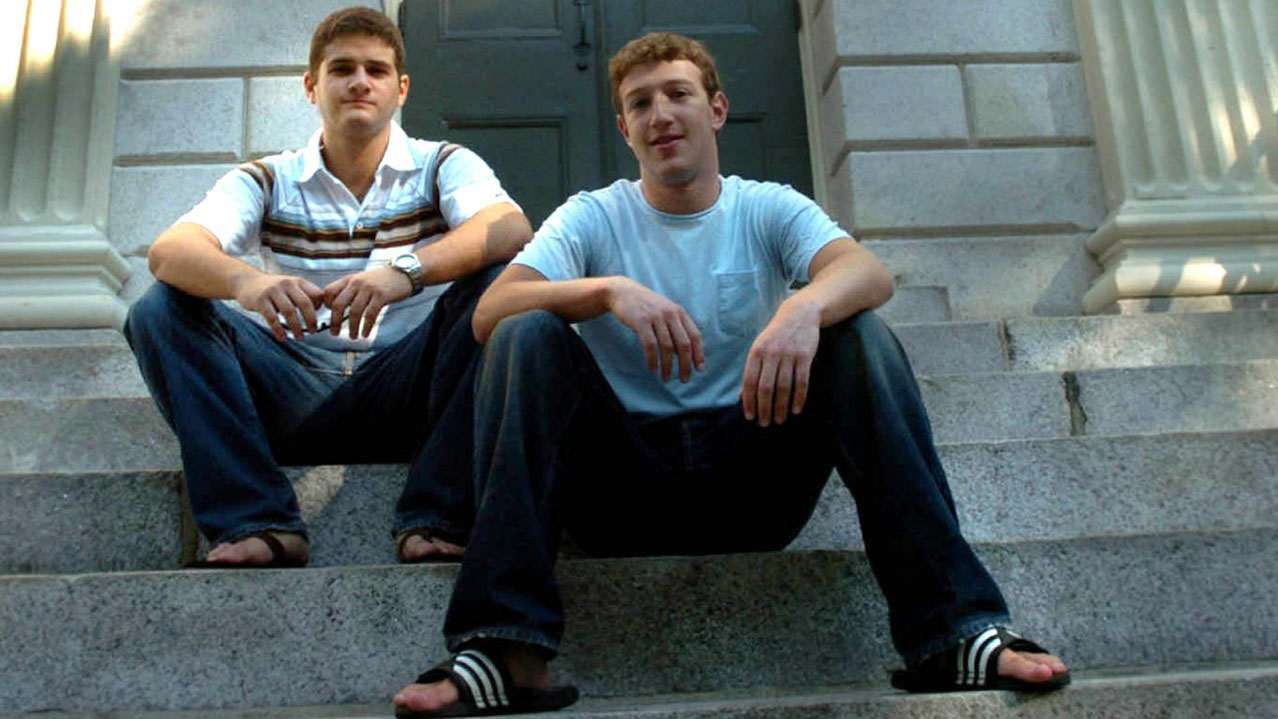
The Creative Dilemma: Sharing Ideas vs. Protecting Them
As a creative person, I’ve often found myself in a dilemma that many others face—whether to share my ideas or keep them to myself out of fear that they might be stolen, repurposed, or outright stolen.
Ideas, to me, are incredibly valuable.
They’re the sparks of innovation, the seeds from which amazing things grow. So, the thought of someone taking one of my ideas and turning it into something without me being a part of it has always weighed on me.
But over time, I’ve come to understand a truth that’s shifted my perspective: while ideas are important, execution is what really makes them shine.
The process of bringing an idea to life—the planning, building, problem-solving, and iterating—is where the true value lies. Ideas are a foundation, but they’re only as good as the effort and execution behind them.
Why Execution Matters More Than the Idea Itself
Take Facebook, for example. The idea of a social network wasn’t unique when Mark Zuckerberg built it. My Space and Friendster were already in the game. What made Facebook different was how it was executed—the design, scalability, and how it tapped into college communities first, creating a sense of exclusivity that snowballed into mass adoption.
Similarly, countless people had ideas for ride-sharing apps before Uber, or for online bookstores before Amazon. But the success of those companies wasn’t just in the initial concept; it was in the relentless focus on delivering the best possible product or service and adapting over time.
The Fear of Losing Ideas
The fear of losing ideas is real, though, especially in industries where competition is fierce. Many creators worry that by pitching an idea or sharing it with collaborators, they’re putting themselves at risk of having it stolen or used without credit. This is a valid concern—stories of stolen ideas are not uncommon.
For instance, Snapchat co-founder Evan Spiegel accused Facebook of copying Snapchat’s features, like Stories. And while Facebook didn’t hide its intentions, the sheer scale of its platform meant it could roll out similar ideas to a much larger audience, overshadowing Snapchat’s original innovations.

Notable Cases
Nobody wants to find themselves in a position where they have to go to court to protect their ideas—an exhausting, expensive, and often uncertain process. Yet, history is full of famous legal battles over intellectual property, where the value of ideas and execution collided in high-stakes courtrooms.
Facebook and the Winklevoss Twins
The Case: Mark Zuckerberg, while a student at Harvard, was hired by Cameron and Tyler Winklevoss and Divya Narendra to help develop a social networking platform called HarvardConnection (later rebranded as ConnectU). Instead of completing the work for their platform, Zuckerberg allegedly used the concept to create Facebook.
The Legal Battle: The Winklevoss twins filed a lawsuit in 2004, accusing Zuckerberg of breaching their agreement and stealing their idea. The case dragged on for several years, with accusations of unfair practices on Zuckerberg’s part, including delaying the launch of HarvardConnection.
Outcome: In 2008, the case was settled, and the Winklevoss twins received $65 million ($20 million in cash and $45 million in Facebook stock). However, the value of Facebook’s stock later skyrocketed, making the settlement worth over $500 million. While this didn’t give them full credit for the idea, the settlement made them financially whole.

Napster vs. LimeWire and the Music Streaming Revolution
The Case: Shawn Fanning and Sean Parker launched Napster in 1999, pioneering the idea of file-sharing music online. While Napster faced major lawsuits from the music industry and was eventually shut down, its core idea inspired other platforms like LimeWire and, eventually, legal streaming services such as Spotify.
Legal Fallout: Although Napster didn’t directly sue others for “stealing” its concept, the creators were effectively sidelined from the industry. Sean Parker later became involved with Facebook and Spotify, where he helped further the idea of music sharing—this time in a legal format.
Lesson Learned: Napster’s downfall was a cautionary tale about the importance of execution within legal and business frameworks. The idea was groundbreaking, but its execution failed to comply with copyright law, allowing others to build on it successfully.
Tesla vs. Rivals in the Electric Vehicle Industry
The Case: Tesla’s CEO Elon Musk made the company’s patents for electric vehicles open-source in 2014, stating that Tesla’s goal was to accelerate the growth of sustainable energy. While this wasn’t a direct theft case, competitors like Rivian and Lucid Motors have been accused of recruiting Tesla employees to copy key designs and concepts.
Legal Battles: Tesla has filed lawsuits against companies like Rivian, accusing them of poaching employees to steal trade secrets. These lawsuits are ongoing in some cases, and the outcomes will likely focus on whether proprietary information was used unfairly.
Outcome: Tesla’s focus on execution and innovation has kept it ahead of rivals despite the open-source nature of its patents. Its relentless innovation, brand identity, and scale make it difficult for competitors to outdo its market position, even if they borrow ideas.

Apple vs. Samsung: The Smartphone Wars
The Case: Apple accused Samsung of copying the design and functionality of its iPhone, including its rounded corners, user interface, and gestures. This was part of a broader issue in the tech industry where companies frequently borrow and iterate on each other’s ideas.
Recommended by LinkedIn
Legal Battle: Apple sued Samsung in 2011, claiming patent infringement. The case dragged on for several years, involving multiple appeals and billions of dollars in potential damages.
Outcome: Apple was initially awarded $1 billion in damages, but the amount was later reduced after appeals. Samsung paid $539 million to Apple in 2018 as part of the final settlement. However, Samsung’s continued innovations and market strategy helped it remain a dominant player in the smartphone industry.
Google vs. Oracle: The Fight Over Java
The Case: Google used Oracle’s Java programming language to build its Android operating system without obtaining a proper license. Oracle claimed this was a theft of intellectual property and sued Google for $9 billion in damages.
Legal Battle: This case revolved around whether Google’s use of Java APIs constituted fair use. After years of legal back-and-forth, the U.S. Supreme Court ultimately ruled in Google’s favor in 2021, stating that its use of Java fell under fair use.
Outcome: While Google avoided paying damages, this case highlighted how disputes over ideas (or their implementation) can drag on for years, with uncertainty for both sides.

Key Takeaways for Protecting and Executing Ideas
So how do creatives, mitigate this risk while still collaborating and sharing ideas?
Protect Your Intellectual Property Early: Use trademarks, copyrights, or patents to safeguard your ideas whenever possible. For example, the Winklevoss twins could have filed for stronger protections before bringing Zuckerberg on board.
Focus on Execution and Differentiation: Even if your idea is copied, the way you execute it matters most. Apple, Tesla, and others have stayed ahead by continuously innovating, even when competitors have tried to replicate their work.
Leverage Legal Agreements: Non-disclosure agreements (NDAs) and contracts are crucial when sharing your ideas with potential collaborators. These agreements provide legal recourse if someone violates your trust.
Build a Strong Brand: A unique brand and user experience can make it difficult for others to steal your audience, even if they copy your idea. Facebook’s execution outshone its competitors, even though the concept wasn’t entirely original.
Be Ready to Adapt: If someone takes your idea, you can still pivot or innovate to stay ahead. Being the first to market isn’t always necessary; being the best in the market is what counts.
Document Your Work Keep records of your ideas, from initial concepts to the development process. Write everything down, timestamp your notes, and store them in a secure place. If the idea is significant, consider filing for a copyright or trademark early on to establish ownership.
Collaborate with the Right People If you’re sharing your idea with others, choose collaborators you trust. When pitching ideas to companies or individuals you don’t know well, use non-disclosure agreements (NDAs). These legal agreements can protect you by ensuring others can’t use or share your ideas without permission.
Act Quickly Ideas don’t exist in a vacuum—chances are, someone else is thinking of something similar. The faster you can start turning your idea into a tangible product or service, the less likely you are to be overtaken or copied before you’ve made your mark.
Focus on Execution Instead of obsessing over how to protect your idea, put that energy into execution. The more you refine your idea and turn it into something unique and well-developed, the harder it will be for others to replicate.
Build a Brand Around Your Execution Great execution includes creating a brand or identity that resonates with people. For example, Apple didn’t invent the smartphone, but it perfected the user experience and built a brand synonymous with quality and innovation.
Leverage Community and Transparency Sometimes, sharing your ideas with the right audience can act as a protective mechanism. Building a community around your idea early on makes it harder for others to claim ownership without being called out. Kickstarter campaigns are a great example of this: creators publicly announce their ideas, raising funds while simultaneously establishing themselves as the originators.

Balancing Sharing and Protecting Ideas
For me, overcoming the fear of sharing my ideas has been a journey.
I’ve learned that while ideas are precious, they aren’t priceless until they’re put into motion.
They also usually require a team and others helping so having an idea and keeping it to yourself for fear of negative outcomes really doesn’t help you or the world.
Ideas alone don’t create impact—it’s the work you put behind them that does. At the same time, taking steps to protect your ideas and sharing them strategically can give you peace of mind and allow you to focus on what really matters: creating something amazing.
The world is full of great ideas. But what separates dreamers from innovators is the ability to execute—and to keep building even when others try to catch up.
So, my advice to other creatives is this: trust your instincts, document your work, and focus on bringing your ideas to life in ways that only you can.
Do you have any stories to share about a time you did or didn’t share an idea and you regretted it?
Reach out to me to talk about it Mike Sorrenti








